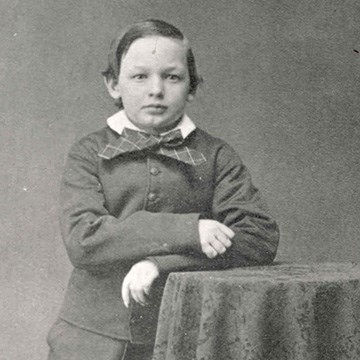A Close Look at Lincoln’s First Inaugural Address
- abesgirl
- Mar 4, 2021
- 3 min read
Updated: Mar 23, 2021
By Wendy Swanson via Lincolnian
Washington D.C.
March 3, 2021
From the Lincoln Group Archives

This article provides additional information on the events of March 5, 2011, held to commemorate the 150th anniversary of Lincoln’s first inaugural. The Lincoln Group of DC was a co-sponsor of these events.
Following a reenactment of the Lincoln swearing-in ceremony, participants adjourned to the Willard Hotel for a banquet luncheon. There they were given the opportunity to further contemplate the words they had heard Sam Waterston read earlier in the day. Ronald White, the keynote speaker at the luncheon, presented his audience with additional food for thought through a careful examination of Lincoln’s First Inaugural Address.
Mr. White is frequently asked “are Lincoln’s speeches, Lincoln’s speeches?” His reply is that basically they are with one exception – the First Inaugural. Lincoln shared his draft speech beforehand with others including William Seward. In residence at the Willard prior to the inauguration, Lincoln received a knock at the door. The visitor was Seward with six pages filled with 49 suggestions for the speech. Lincoln ended up accepting 27 of the suggestions.
Early in the speech, after an initial self-reference, Lincoln began directing all attention away from himself. White observed that “Lincoln disappears in his speeches.” As an example, White mentioned that the Gettysburg Address does not contain one personal pronoun. When reading or listening to the speech, that observation becomes readily apparent as Lincoln speaks of a “Republican Administration,” "the Union,” “the American People,” “the national authority,” “the Constitution” and “the people.” The speech also begins on a conciliatory note: “I have no purpose, directly or indirectly, to interfere with the institution of slavery in the States where it exists. I believe I have no lawful right to do so, and I have no inclination to do so.” According to White, Lincoln truly believed in the power of words and in their ability to persuade. As an aside, the speaker indicated that Frederick Douglas was “furious about this part of the address.”
One of Lincoln’s goals in presenting the address was to demonstrate “the indivisibility of the Union.” In part, his words on this issue were “I hold, that in contemplation of universal law, and of the Constitution, the Union of these States is perpetual . . . it is safe to assume that no government proper ever had a provision in its organic laws for its own termination.” White noted that the crowd cheered at this point in the speech. The speaker also observed some of Lincoln’s techniques in making such a presentation, such as his habit of asking questions to draw the audience into the issues. Lincoln used another tool in his arsenal, alliteration (think property, peace, personal security), to underscore the current crisis. White described this portion of the address as “very lawyerly and rational, presented as if Lincoln thinks he can persuade the audience.”
Next, Lincoln is ready to “issue the challenge” to the nation. In doing so, Lincoln first characterizes the opponents. 'Plainly, the central idea of secession is the essence of anarchy." Subsequently, Lincoln shifts his tone to advise his fellow countrymen that “this issue of civil war is in their hands, not his.” He advised that the government plans no assault. There “will be no conflict without you yourselves the aggressors.” White opined that Lincoln was no genius but that he worked very hard, as the speaker suggested we all should do when speaking or writing.
Mr. White afforded particular emphasis to the final paragraph of the speech. Seward had suggested that Lincoln forget the last paragraph in the original version of the address. Rather, he advised him to remember the words of Thomas Jefferson in his own inaugural address: “We are all Republicans, we are all Federalists.” Seward challenged Lincoln to reach to others. To assist him, Seward offered a suggested final paragraph. Lincoln, of course, did some tinkering of his own on the suggested language. The result, in White’s words, is “some of the most memorable prose-poetry in American history.”
Here are a couple of the examples White gave of Lincoln’s wordsmithing. Instead of using Seward’s “I close,” Lincoln said “I am loathe to close.” He, thus, extended the meaning of this phrase and used sounds that speak for the ear. Seward suggested the following language: “We are not, we must not be, aliens or enemies, but fellow-countrymen and brethren.” Lincoln chose to use language that was both simpler and stronger: “We are not enemies, but friends. We must not be enemies.” Lincoln also opted to personalize the language used. Accordingly, he referenced “the better angels of our nature” rather than Seward’s suggested “the guardian angel of the nation.”
White opined that Lincoln had “musicality in his words.” He noted that Lincoln never referred to fear and distrust in this speech. After studying the content and presentation of Lincoln’s talk, our key note speaker concluded “words mattered.”



Comments